#TTGH3
Text
King Of Fools
Throughout my analysis of The Owl House, you might have noticed that I have been largely focusing on Luz and co., with Eda sometimes gaining the limelight. With a few exceptions, I have mostly glossed over King's storyline, because it has mostly been comedy relief that plays offhandedly into the themes of the story.
But King is a fascinating character, and a complex one. And even in his previous focus episodes, he has been portrayed as relatively flat. He likes conquest and violence, that's pretty much it. So where did that change?
I would argue that King's character development and complexifying began in Really Small Problems.
Let me explain.
SPOILERS AHEAD
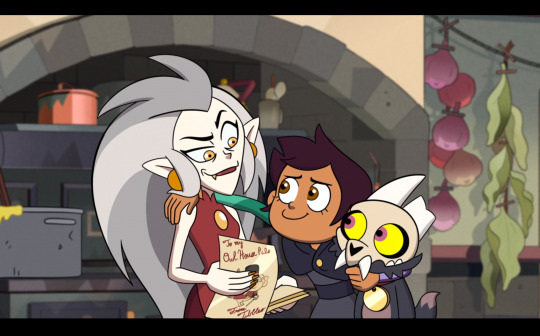
This episode fleshes King out by making him simpler, at least in motivation. Here, King's ambitiousness and world conquering nature shift slightly. We are introduced to a fundamentally petty character, and that's not a bad thing, most of the time. He just wants attention.
Now, pettiness is a focus on the small things in life, and that's what King does. He fixates on the little things and causes problems because of it. You might say that he has Really Small Problems. Maybe.
But there is a negative connotation to the word "petty". It's the reason it gets used as an insult, and that's because there is an obsessive element to it and a selfish element. Not malicious, but problematic, which can sometimes cause conflict.
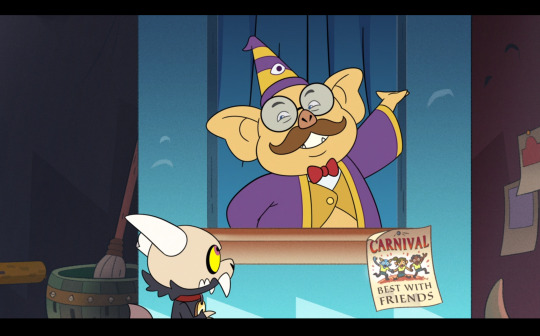
For an example of why this causes issues, take the antagonist of this episode, one Tibblet-Tibblie Grimm Hammer III (TTGH3, I refuse to call this man "Tibbles"). I think that TTGH3 and King are rather similar characters, and it is this that causes character development in king.
Because King is petty. He is obsessive, and selfish, at the start of the episode. And he doesn't stop being those things at the end of the episode, or even at the end of the series, he just matures. He learns in which situations that selfishness is perfectly fine, and in what situation it isn't.
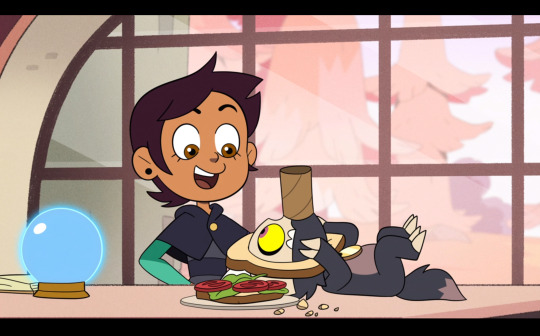
This episode opens with a quick briefing of King's character. Luz has been talking with friends, and King wants attention, so he makes a fool out of himself, and this reframes his actions in previous episodes. Suddenly the comedic antics become attempts for that same attention, and we see how that causes problems in retrospect.
King's goals have been simplified from conquer and rule the world to "notice me" and the complexity is derived from how that goal, despite being much more achievable, gets brought into conflict with other people.

That is actually a summary of the plot as well. King sees Luz spending time with her friends without him, and he makes a fool out of himself trying to get her back. He gets tricked by TTGH3 into making everyone tiny, and directly causes problems.

The symbolism of that friendship bracelet is rather cool, actually. King values it more than anything else, specifically its exclusivity. But when he realises his mistake, his way of remedying the problem is breaking it, shattering the symbol of his obsession, but also breaking it into more pieces. The same heart can be shared between more people.
I am also ninety percent sure that the carnival setting of this episode just exists for that hall of mirrors so that the metaphor of distorted perceptions could be hammered home.

TTGH3 doesn't learn this lesson at all, because he is a mirror of King (more mirror symbolism). TTGH3 is what happens if King continues on his current path, going against his friends and being possessive over them. Reducing them to items he can keep in a box.
But King's pettiness isn't a bad thing. Not exclusively. He is the perfect foil of Luz, and of Bellos, and of the Collector later on down the line (but we will talk about that when we get there). And that specifically ties into his role as the fool.

History Collection has an article about the history of the fool, and the thing I find fascinating is the duality of the character. This was the only person who could mock the king without losing their head, and served a myriad of roles (including sometimes as an assassin) because they were trusted and underestimated. The fool was an eejit who you didn't need to worry about because they were joking, but they were often the most astute person in the court.
The fool made people laugh, and I think that is important. Laughter is a primarily selfish emotion. You disrupt others because you are enjoying yourself, but it isn't maligned. It is encouraged. King straight up references tropes of being a comedian, a role directly descended from the fool.

If we return to the mirror symbolism, King is a mirror of both Luz and Bellos, but in the opposite ways. Luz enters the story wanting a worldly adventure and to save the world, and she gets those things, but she has to learn that it is the small things that matter just as much. Luz has to learn to see the world the way it is, and King's arc mirrors that, but with how he sees himself.
King begins the story wanting to rule the world, and the single best piece of catharsis in the entire series is a photo on a wall in the last episode depicting King playing catch with Eda. It's ok to want the small things, its ok to not know what you want. And its ok to be a bit selfish sometimes. Sometimes you want to laugh, sometimes you need to do your own thing. But you need to understand where that comes into conflict with others, and you need to understand how to take care of yourself and those others.
Maybe it's not selfish or petty, maybe I'm getting the words wrong (language is weird), but the point still stands.
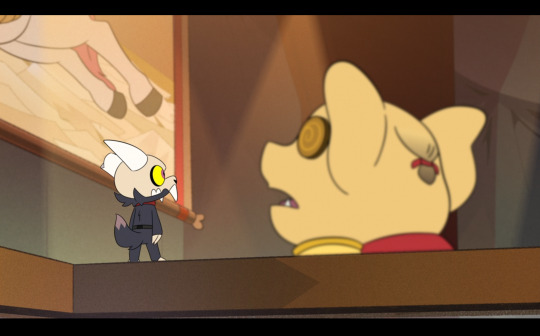
But King is also a direct foil of Bellos. Starting with the obvious of both referring to themselves with titles, King and Emperor. But the contrast between the two is important. Bellos began his own story thinking on an incredibly small level, to the point where his own obsession over it killed his brother, but then Bellos decided he wanted to rule the world. He sacrificed his family for rulership.
King forsakes ruling for (found) family. As later reveals show him to be a titan, and associated with connection and nature, it would seem that Bellos is in opposition to the Boiling Isles as a whole. Not just practically but ideology.
The fool criticises the king. King criticises the Emperor. Fitting, in a weird way.
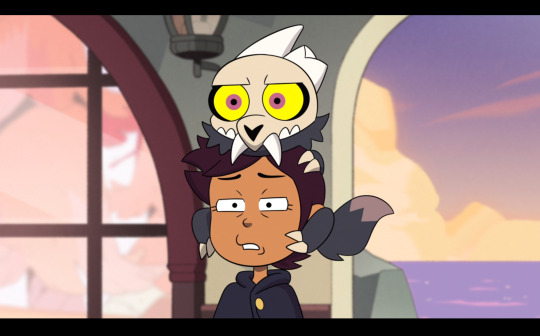
Final Thoughts
I like King. Tropes often get a bad rap, but they can be used effectively, and one that I will faun over every time is the comic relief that very suddenly turns dramatic. Like King later on down the line, but also like the finale of God Of War: Ragnarök. If you know, you know.
Next week, I'm taking a look at Understanding Willow, and there is a lot to talk about there, so stick around if that interests you.
Previous - Next
#rants#literary analysis#literature analysis#character analysis#what's so special about...?#the owl house#toh#toh king#owl house#king clawthorne#TTGH3#Tibblet-Tibblie Grimm Hammer III#I hate TTGH3 so much
20 notes
·
View notes